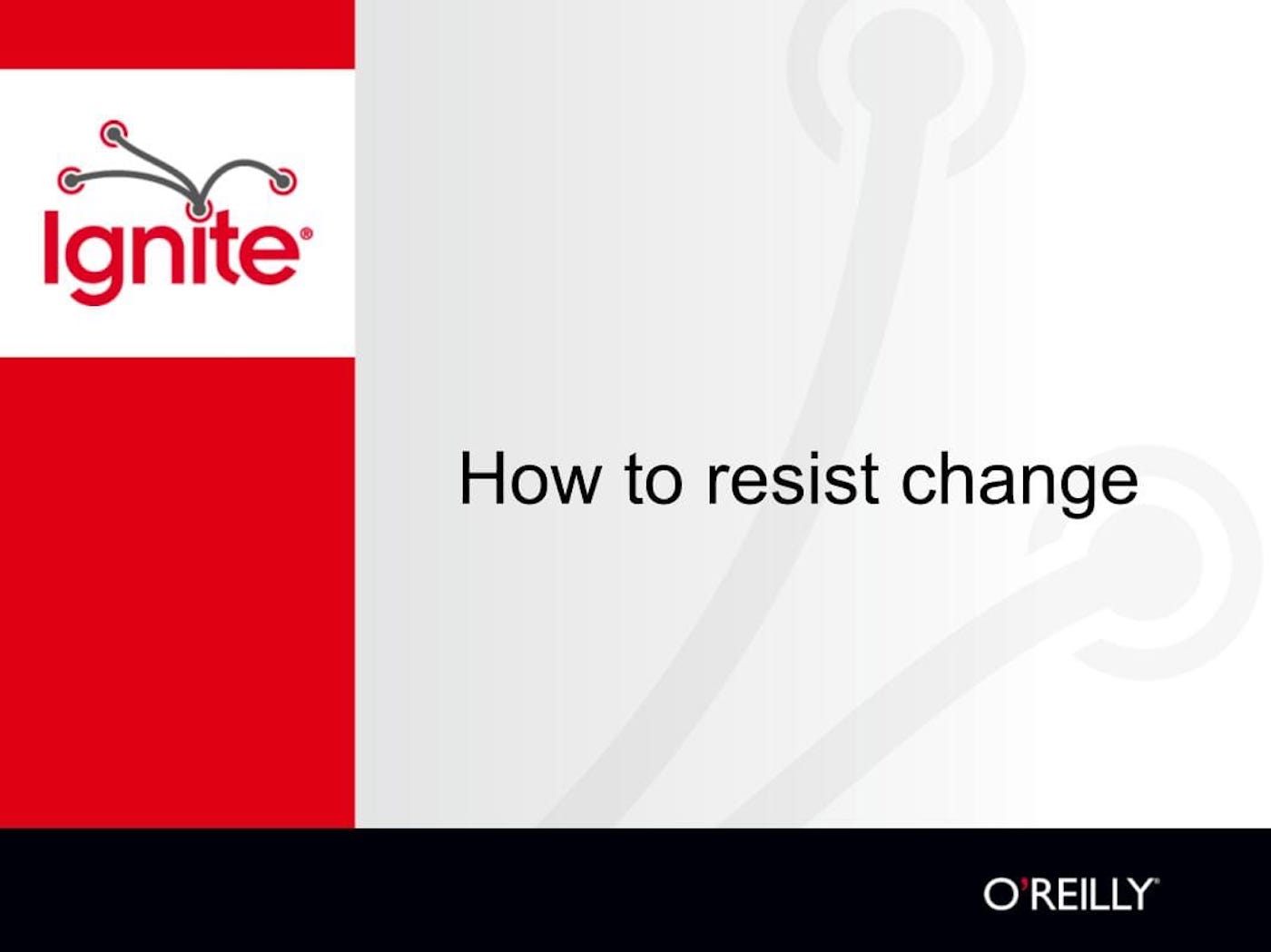My Ignite Sofia Presentation

28 September 2011
Last week, we announced a call for proposals for the next Ignite Sofia evening. I am taking the opportunity to post the presentation I did in February this year for Ignite Sofia #1.

For those of you who don’t speak Bulgarian, below is a short re-cap in English of my presention that night. My original slides are available here (PDF).
We had about a dozen wonderful presentations for the first Ignite Sofia event. You can find the videos (all in Bulgarian) on IgniteShow.
My presentation was based on 15 years of seeing all the different ways in which Bulgarians have been able to resist change in every aspect of society. Hence the title.
How to resist change
Or how to thoroughly botch up any hope of change.
In several easy steps.
Based on a real story.
All of the quotes below are taken from real-life situations that I have been in over the last 15 years in Bulgaria. Though some are universal, collectively they provide an understanding of Bulgarian resistance to change during what is generally referred to as the “transition period” — the last 21 years since the fall of the Communist regime. Where possible, I’ve added the specific context in which the remark was made.
“I reject”
Almost every day, I receive an invitation to join a Facebook cause “against” one thing or another.
It seems that Bulgarians just love to “reject” things. No arguments or counter-ideas required, positions are defined purely by the act of rejecting.
“That is not possible” / “This cannot happen”
There is nothing more encouraging to start a process of change than an outright claim that you are attempting to achieve the impossible. Let’s go for it!
“Nobody does that” or “You are insane”
(source: business)
It wouldn’t be a change if everyone did it. Sure, I might be insane, but it feels great to be insane. And guess what, normal people don’t cause change.
“What will others say”
(source: grandmothers and aunties)
Others consider themselves normal, which is why they don’t cause change. What can we expect them to say?
“That is not accepted here”
Of course it is not! If it was, we would be seeing a lot more change.
“Don’t bother”
Changing the status quo is very much worth bothering with. In fact, there is hardly anything that is more worth the effort.
“That is dangerous”
Change is only dangerous for those who are scared by it or who have an interest in continueing the status quo.
“The law does not allow this”
(source: administration)
There seems to be a persistent myth, specifically in Bulgarian administration, that laws need to define what you can do and how you should be doing the things you do.
You don’t have to be a member of the bar to see how that doesn’t work.
“There is an ordinance that prohibits this”
(source: administration)
This is what I call Plan B for when the previous argument fails. The suggestion is that regulations overrules law.
Logic turned on its head.
“That is a lot more work”
(source: administration)
Work will be different. Probably your work will completely change. But more often then not, change ends up creating less and easier work.
“We can not be sure the new will be better than the old”
(source: Academia)
This argument came up in a context where the new could hardly be more broken than the old.
“Do you know someone who has done this before?”
(source: business)
Ehm, no, that’s why this is called new.
“Can you give me a success-rate for this?”
(source: business)
Sure, right after we are done!
And if all else fails, make sure you do the new thing the old way
If you want to take part in one of the upcoming Ignite Sofia events, send an email to ignitesofia at gmail do com.